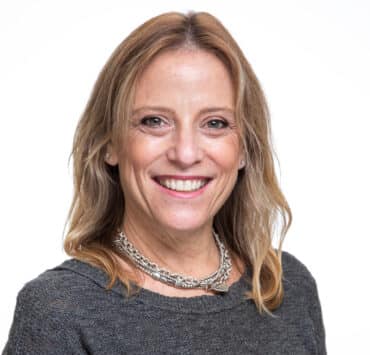|
Getting your Trinity Audio player ready... |
“See your potential. Identify your purpose. Advance your passion.”
These words, stated boldly on cybersecurity expert Erica Wilson’s website, serve not only as words of advice to others but also as a reflection of her own career.
Wilson is vice president of global cybersecurity and privacy risk management at Reinsurance Group of America Inc. (RGA), a Fortune 500 company that she’s worked with since July 2021. She was awarded as Power Player by the SC Media Women in IT Security program just a few months later after taking the role. She’s been an instructor, a conference speaker, and even recognized as a 40 Under 40 honoree by the St. Louis Business Journal.
But rewind far back enough, and she was a high school student learning to code, hungry for challenge and growth, and ready to find her place in computer science. In the years since, the VP has combined her passion for teaching and technology to encourage other women develop confidence and follow in her footsteps.

Potential
Wilson has always had a strong aptitude for math, which she says came naturally to her and inspired her eventual passion for science, technology, engineering, and mathematics (STEM). However, it was a Pascal coding class in high school that caught her attention. “That class exposed me to something that I never knew existed,” she recalls. It propelled her into the world of computer science where she explored other aspects of web development and coding languages.
Armed with a computer science degree from Southeast Missouri State University, Wilson assumed she would stay in that field indefinitely—until she began to feel restless. “I wasn’t as challenged as I thought I would be by it. It was interesting to do, it was fun to do, but it wasn’t as challenging,” she says, noting that she was ready for something more fluid and stimulating.
Fortunately, her employer at the time offered her a spot in an eighteen-month leadership development program that exposed her to new parts of the company’s technology team. It was cybersecurity that particularly intrigued her. “It was very still early; cybersecurity wasn’t even a term at the time, but I [pursued] it on that hunch that I thought it would be around because it was important,” Wilson says of the spot-on prediction.
Purpose
It’s no secret that technology roles are predominantly held by men—75 percent to be exact, according to the World Economic Forum. While Wilson was often outnumbered, this didn’t impede her. Many of her teachers were women and she recognized her own aptitude. Rather than trying to simply blend in with her male counterparts, she emphasized her personal style and identity.
“I didn’t want to ascribe to polos and khakis—even clothing matters,” Wilson explains. “I think showing up as yourself is very important. I [made] sure I was showing up as me being myself and having the confidence to speak up.”
This faith in her identity allowed her to overcome insecurities about how her ideas may be perceived and navigate working in environments of mostly male technicians whose suggestions were more readily accepted. Still, Wilson acknowledges that finding men in her circle to advocate for and uplift her was just as important.
“I think showing up as yourself is very important. I [made] sure I was showing up as me being myself and having the confidence to speak up.”
Erica Wilson
She recalls a moment in her career when she was promoted to her first leadership role and noticed that there weren’t other women in that level. “It was a light bulb that went off,” she remembers. “OK, what can I do to help with this? Because it wasn’t that women couldn’t do it—it was that we either didn’t have enough diversity to promote them and they weren’t showing up, or the networks weren’t strong enough.”
The realization inspired her to get the word out. “I started by building a network and trying to work with people and talk to them about cyber,” says Wilson, adding that she paid visits to schools to speak with younger girls about these opportunities.
“Here’s a career path that you may not have heard of, and I’m in it, and here’s what it looks like and here’s what I do,” Wilson told them.
By now, she’s a known name in the industry and her network has grown exponentially. She’s able to tap her mentees to help them find mentorship experiences of their own. Sometimes, when she’s invited to a particular speaking engagement, she sends another woman in her place. “It doesn’t always have to be me,” she explains. “I kind of expand the network there by giving someone else’s name and giving them exposure and an opportunity.”
Passion
The VP has made countless contributions to the field by leading and strengthening cybersecurity programs at large firms, but her true passion is making sure there’s room for other women in STEM.
“What stands out for me the most is that at some point I feel like I am making an impact and that just makes it more rewarding because it’s not about me, it’s about those that will follow me and those that will come,” Wilson shares. In fact, educating others paid a crucial part in her own success.
When she was teaching as an adjunct instructor at Washington University in St. Louis and ITT Technical Institute, the experiences laid the foundation for her leadership. “I was in charge every day when I showed up to the classroom; people were looking to me to teach them whatever it is we were working through,” she explains. “But what it taught me was how to navigate a room, how to show up, how to plan, [and] how to have an effective dialogue to get my point across.”
“What stands out for me the most is that at some point I feel like I am making an impact and that just makes it more rewarding because it’s not about me, it’s about those that will follow me and those that will come.”
Erica Wilson
Her affinity for teaching also translated to her ongoing presence as a member on more than ten boards and committees that are dedicated to matters like diversity, equity, and inclusion, cyber, IT, economic empowerment, education, and even performing arts.
It’s an admirable feat, especially given that only 14.3 percent of board seats at tech companies are held by women, something that Wilson seeks change by claiming another spot in the coming years. “A couple of the nonprofit boards and advisory boards I sit on are focused on STEM and cyber awareness and those certainly are good ways to promote and help people.”
“One I goal I would like to achieve is sitting on a public board of directors. I’ve done a lot in the nonprofit space for a long time. I understand how boards work,” she continues. “That’s where I’m focused now—making sure that there’s exposure and visibility, just like people know that there are policemen and fire chiefs and all those types of different jobs. They should know about women working in cybersecurity.”

